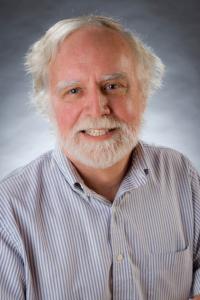Stephen P. Goff, PhD
- Higgins Professor of Biochemistry and Molecular Biophysics
- Professor of Microbiology & Immunology
On the web

Overview
Goff has been interested in viruses and their interactions with the host throughout his career. Over the past three decades, the Goff laboratory at Columbia University has focused on the replication of the mammalian retroviruses, including the Moloney murine leukemia virus and human immunodeficiency virus type 1 (HIV-1), aiming to define the functions of each of the viral gene products and to identify host proteins with which the viruses interact. His group studies all aspects of the viral life cycle. He has also made a major effort toward the characterization of the Abelson murine leukemia virus oncogene, its regulation, and its downstream signaling pathway. The laboratory makes use of the two-hybrid system, proteomic methods, and somatic cell genetics to identify host proteins that impact the viruses, including those that either restrict or enhance virus replication. The lab has identified and characterized a novel host protein, termed ZAP for zinc finger antiviral protein, that blocks gene expression of many viruses, including the murine leukemia viruses, Ebola, Sindbis, and HIV-1, by degrading viral mRNAs. Lab members have also characterized a protein complex responsible for the silencing of retroviral DNAs in embryonic stem (ES) cells, and identified a zinc finger protein, ZFP809, as an ES-cell specific recognition molecule that binds the proviral DNA and brings TRIM28 to locally modify chromatin.
Goff is strongly committed to the training of students and fellows and preparing them for careers in science. To date he has trained about thirty-five PhD students and a similar number of postdoctoral fellows. His alumni include heads of laboratories at universities in the US, UK, Australia, Chile, China, Taiwan, and Israel; department chairs; investigators at the NIH; and scientists at many biotech companies and large pharmaceutical firms.
Research Interests
- Retroviral Replication
- Genome instability
- Retroelements and Endogenous retroviruses
- Oncogene activation
Academic Appointments
- Higgins Professor of Biochemistry and Molecular Biophysics
- Professor of Microbiology & Immunology
Credentials & Experience
Education & Training
- AB, 1973 Biophysics, Amherst College
- PhD, 1978 Biochemistry, Stanford University Medical Center
- Fellowship: 1981 Massachusetts Institute of Technology
Committees, Societies, Councils
1995 Fellow, American Academy of Arts and Sciences
1997 Fellow, American Academy of Microbiology
2006 Member, National Academy of Sciences
2006 Member, National Academy of Medicine
2007 Fellow, American Association for the Advancement of Science
Honors & Awards
- 1982-1986 Irma T. Hirschl Career Development Award
- 1982-1985 Searle Scholarship Award
- 1985 Harold and Golden Lamport Research Award, Columbia Univ.
- 1990, 2003 MERIT award, NCI
- 1991 Dean's Distinguished Lecture in the Basic Sciences, Columbia Univ.
- 1995 Fellow, American Academy of Arts and Sciences
- 1996 Honorary degree (Doctor of Science), Amherst College
- 1997 Fellow, American Academy of Microbiology
- 2006 Member, National Academy of Sciences
- 2006 Member, National Academy of Medicine
- 2007 Fellow, American Association for the Advancement of Science
- 2010 Distinguished Research Career Award, Ohio State University
- 2017 D.C. White Research and Mentoring Award of the ASM
- 2017 Prince Hitachi Prize in Comparative Oncology
- Howard Hughes Medical Institute: Alumni
Research
Goff’s current work is centered on the study of the retrovirus life cycle and the host restriction systems that inhibit virus replication. His lab identified and characterized a novel host protein, termed ZAP for zinc finger antiviral protein, that blocks gene expression of many viruses, including the murine leukemia viruses, Ebola, Sindbis, and HIV-1, by degrading viral mRNAs and inhibiting their translation. Recent work has identified RIPLET, a signaling molecule in annate immunity, as a cofactor for ZAP. The lab has also characterized a protein complex responsible for the silencing of retroviral DNAs in embryonic stem (ES) cells, and identified a zinc finger protein, ZFP809, as an ES-cell specific recognition molecule that binds the proviral DNA and brings TRIM28 to locally modify chromatin. His lab is currently studying the chromatinization and silencing of incoming retroviral DNAs after acute infection, implicating several histone modifiers and the H1 linker histones as players in silencing of unintegrated HIV-1 DNAs. He is further interested in the role of endogenous viral proteins in tumor immunology.
Selected Publications
-
Buckmaster, M.V., and Goff, S.P. (2022) Riplet binds the zinc-finger antiviral protein (ZAP) and augments ZAP-mediated restriction of HIV-1. J. Virol. 96, e0052622.
-
Wang, G.Z., and Goff, S.P. (2020) Yin Yang 1 is a potent activator of human T lymphotropic virus type 1 LTR-driven gene expression via RNA binding. Proc. Natl. Acad. Sci. USA 117, 18701-18710.
-
Zhu, Y., Wang, G.Z., Cingöz, O., and Goff, S.P.(2018) NP220 mediates silencing of unintegrated retroviral DNA. Nature 564, 278-282. PMID:30487602.
-
Qiu, Z., Cang, Y., and Goff, S.P. (2010) c-Abl tyrosine kinase regulates cardiac growth and development. Proc. Natl. Acad. Sci. USA 107, 1136-1141. PMCID: PMC2824287
-
Wolf, D., and Goff, S.P. (2009) Embryonic stem cells use ZFP809 to silence retroviral DNAs. Nature 458, 1201-1204. PMCID: PMC2676211
https://www.ncbi.nlm.nih.gov/myncbi/1BCzkdI6EVy/bibliography/public/
For a complete list of publications, please visit PubMed.gov